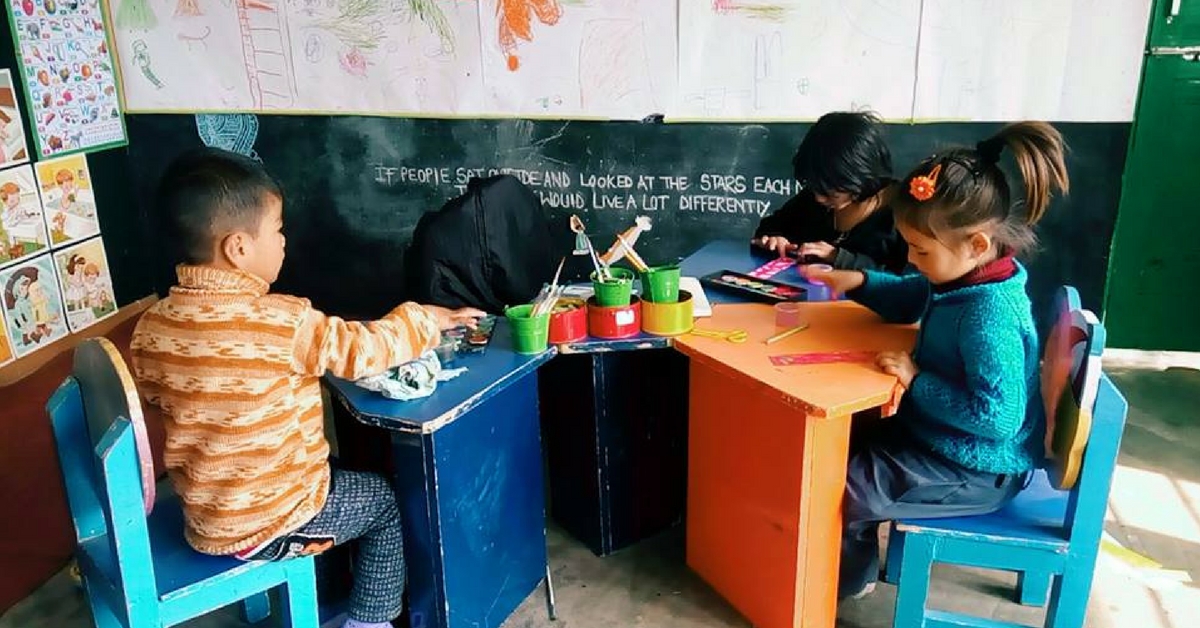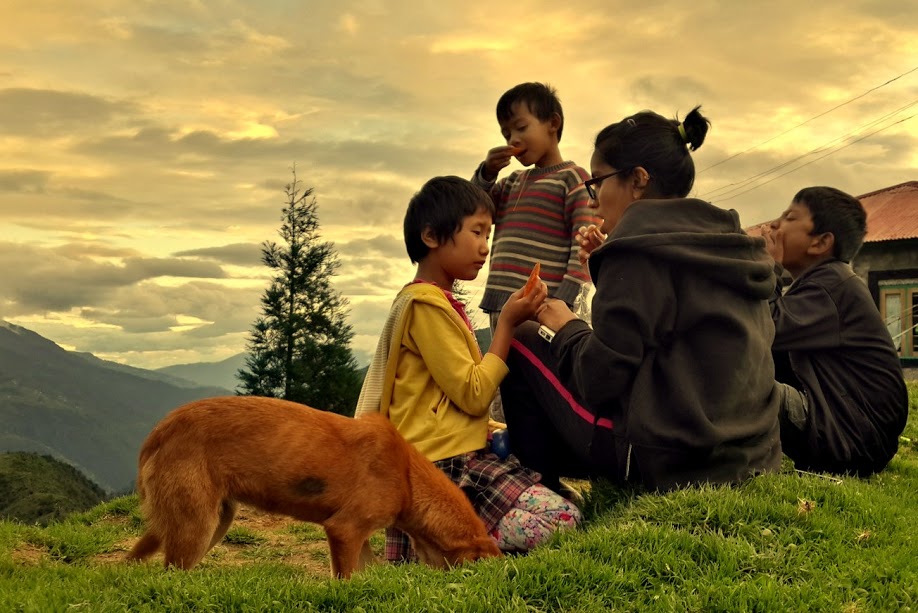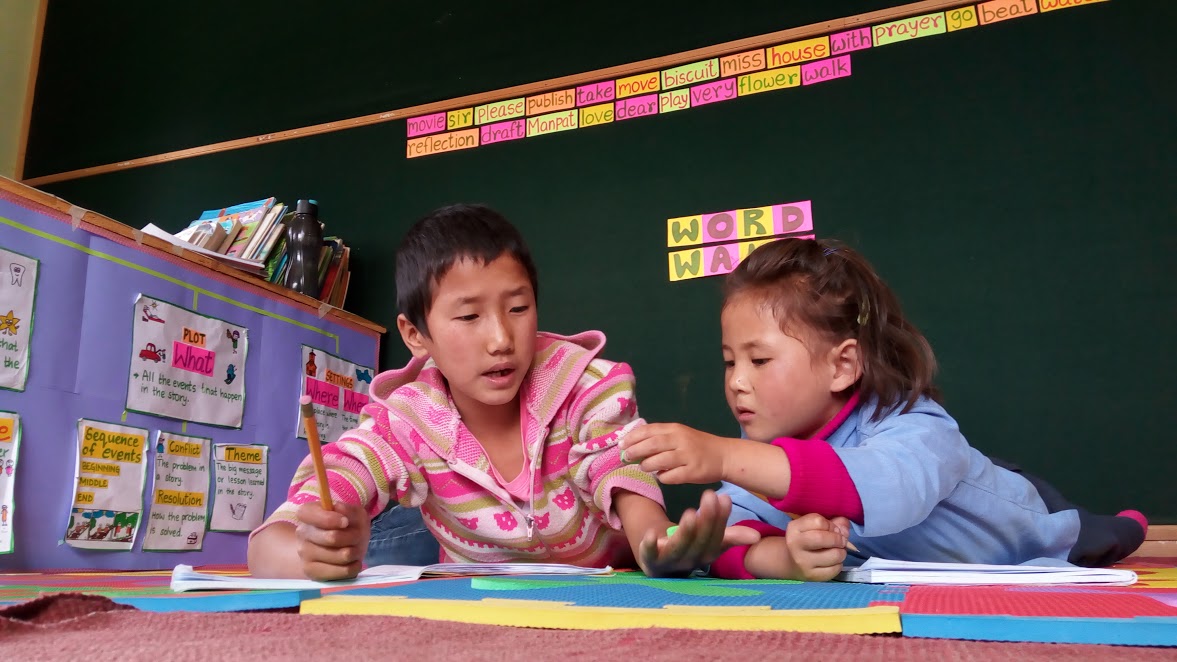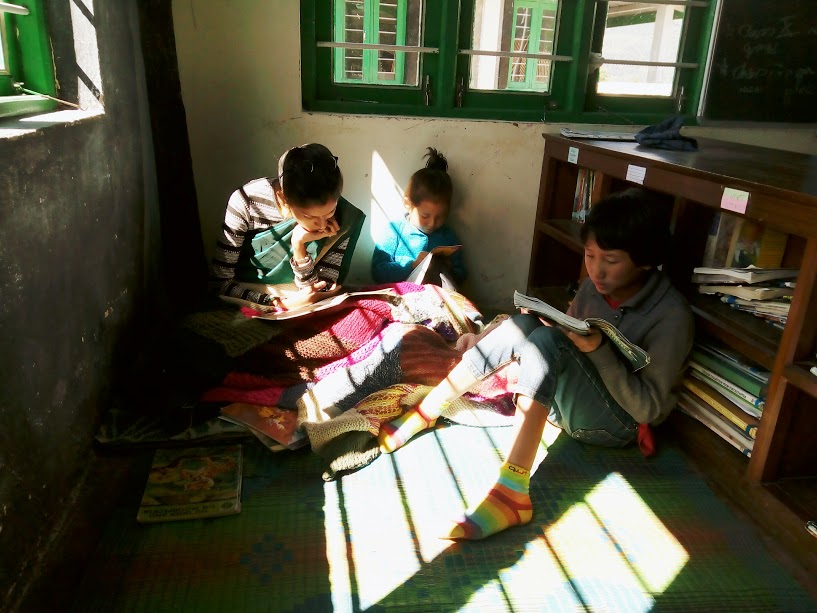One Teacher in a Tawang School Is Learning That Education Is Better With Love and Compassion
Jhamtse gatsal is Tibetan for ‘a garden of love and compassion’. The outcome being worked towards is empowering each child in whatever choices they make.

Warmly nestled in the remote, idyllic district of Tawang in Arunachal Pradesh, is the Jhamtse Gatsal Children’s Community (JGCC). It is home to around 90 children, from kindergarten to grade 12 – either orphaned, or having confronted abuse, violence, and neglect. It was started in 2006 by Lobsang Phuntsok, a Buddhist monk, who suffered a similar childhood. “He had one teacher who believed in him, and that is what changed him. He started the community so that these children would not have to go through the same hardships as he did,” says Nidhi Iyer, a 2013 Teach For India Fellow who spent the last two years living and teaching at the JGCC. Ever since pursuing her degree in Political Science and Psychology, Nidhi has wanted to focus her attention on children , and believes “teaching is most fundamental form of understanding them.”
Jhamtse gatsal is Tibetan for ‘a garden of love and compassion’. “The outcome that we work towards is empowering each child in whatever choices they make. And love and compassion underlie that outcome,” says Nidhi. “Being a kindergarten teacher, I noticed that some of these kids found it hard to articulate their trauma or tell me what they were feeling. I’ve had instances where a kid just cried for two hours on my shoulder,” she recalls. Because most of her students are trauma survivors, Nidhi applied these two values of love and compassion to all of her interactions – prioritising emotional capacity-building for her children above all else.

“Teach For India instilled a need for personal growth in me. It taught me that in order to create happy children you have to be a happy teacher,” she says; she stresses the “importance of looking at the bright side”, seeking contentment in what you have, and sharing that with those around you.
Her primary focus was to ensure her children knew how “to channelise their negative emotions in productive ways, resolve conflicts and be mindful of other people’s spaces.”
In her first year, she taught kindergarten students. During her second year, in addition to kindergarten, she took on 11th grade political science, arts for middle school, and occasionally taught dance. Of her roles at the JGCC, Nidhi says, “being teachers, drivers, kitchen staff, or Ama-las (house mothers) are all secondary. Our first responsibility is to be a community member.” As an active recycler, Nidhi was fondly referred to as the resident kabaadiwaali (scrap dealer). “I had the tendency to pick stuff up and make things out of it. In my room as well, my shoe stand was made out of egg-crates. My kindergartners used to bring random things to me (I had to teach them not to dig through garbage!) and say ‘Madam, iska kuch bana sakte hai kya?’ (Madam, can something be made out of this?) If not recycling, just the idea of thinking before trashing something is important. I think I contributed to that culture.” For her first Christmas celebrations at the JGCC, Nidhi encouraged the community members to use waste-paper from previous years’ notebooks to construct a six-foot tall tree!
The curriculum at the JGCC school focuses on free-play, project-based and enquiry-based experiential learning.

Of their methods of unstructured education, Nidhi says: “I very strongly believe that children learn the most when they are left to learn through their own devices. You give them all the resources you can, you model it, and you sit back and let them do it.”
One of her kindergarten students, Tsering, learned the entire alphabet without Nidhi ever formally teaching it to her! “When she was in pre-KG, she observed while I taught the older kids. I had mats and charts in the classroom with the alphabet on it. By the end of the year, she had learned it by herself. I then helped her with whatever mistakes she was making,” she says.
The need to adhere to the CBSE board makes it difficult to fully implement this mode of education in higher classes (9th to 12th grade). In Nidhi’s opinion, the board limits them more than it educates them. “These kids are far greater and much more capable than the education system expects them to be in terms of skills and emotional well-being. I was teaching things that could be Googled and learned. I would much rather spend time teaching them other skills that can be practically applied in Political Science,” she says. It is an academic limitation that Jhamtse works around by ensuring the environment at the community continues to foster their core values.

Their emphasis on daily communal activities of prayer, cleaning, gardening and construction ensures the emotional, social, and spiritual growth of students. One particular instance that remains etched in her mind is when a kindergartner stood up against Nidhi, because she thought her classmate was being treated unfairly by her.
“I know that my kids are going to be kind and compassionate human beings, no matter how well-versed they are in their academics. They may not be exhibiting these values a hundred percent of the time, but I think they do a remarkable job of translating them into actions, and I have learnt a lot from their sense of authenticity,” she says.
Having spent two years in service at the JGCC, Nidhi learned something of immense value: that there is “more learning in teaching and more receiving in giving.” It is people like her, having realised the same, that are changing our world for the better.
Written by Ananya Damodaran – Communications at Teach For India.
Applications for the 2018-2020 Teach For India Fellowship program are now open. Please visit apply.teachforindia.org to submit your application by September 3rd, 2017.
To learn more about Teach For India, visit www.teachforindia.org.
Like this story? Or have something to share?
Write to us: [email protected]
Connect with us on Facebook and Twitter.
NEW: Click here to get positive news on WhatsApp!
If you found our stories insightful, informative, or even just enjoyable, we invite you to consider making a voluntary payment to support the work we do at The Better India. Your contribution helps us continue producing quality content that educates, inspires, and drives positive change.
Choose one of the payment options below for your contribution-
By paying for the stories you value, you directly contribute to sustaining our efforts focused on making a difference in the world. Together, let’s ensure that impactful stories continue to be told and shared, enriching lives and communities alike.
Thank you for your support. Here are some frequently asked questions you might find helpful to know why you are contributing?


This story made me
-
97
-
121
-
89
-
167











